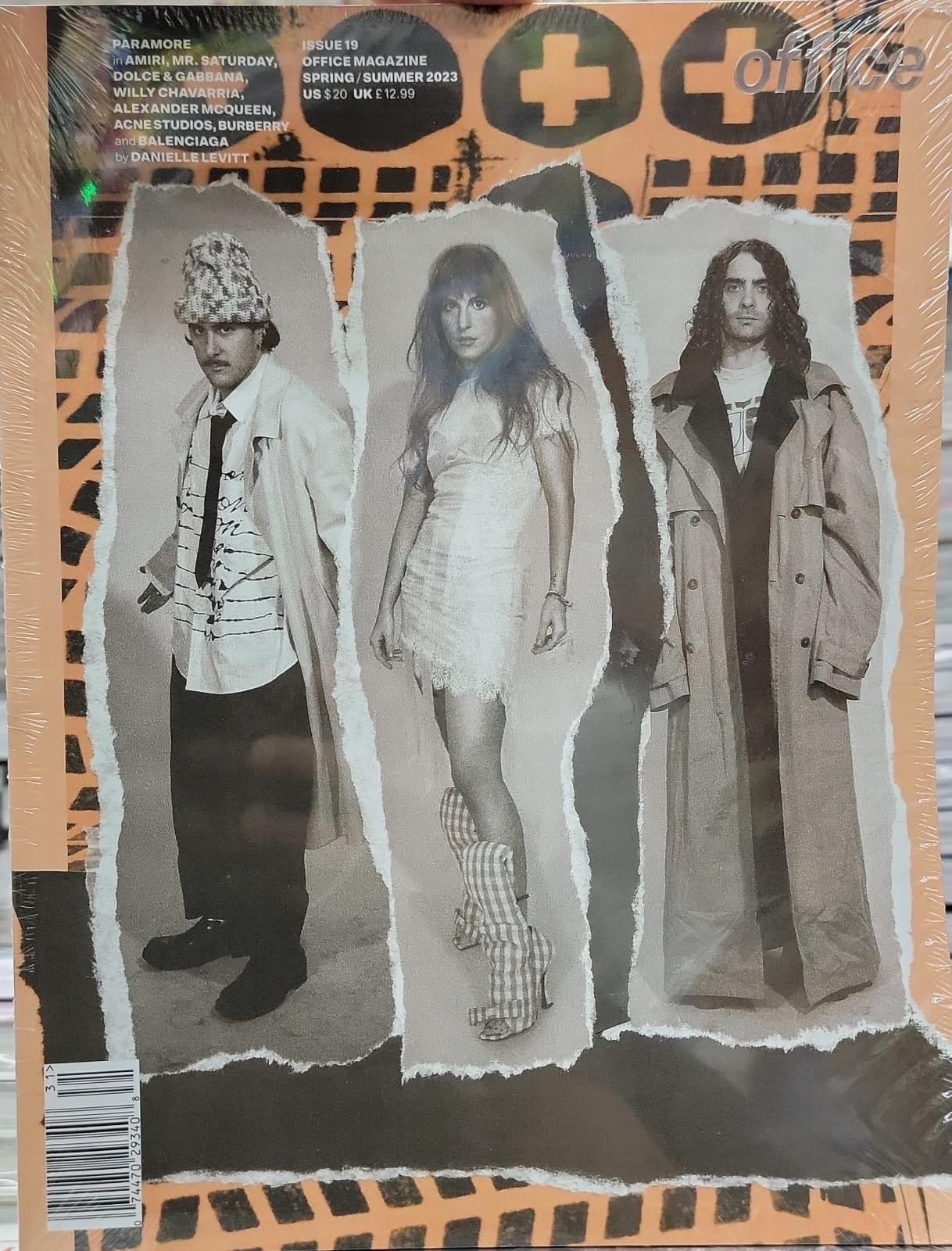- Empty cart.
- Continue Shopping
VOGUE UK (BRITISH) MAGAZINE-MAY 2023-SELMA BLAIR-REFRAMING FASHION-Brand New
$14.99
9 in stock
“””””ITEM IS STOCK NOW”””””PLACE YOUR ORDER WITHOUT ANY HESITATIONS””””
MAY 2023 ISSUE
It Took 40 Years Of Silent Pain For Selma Blair To Receive Her Multiple Sclerosis Diagnosis. Now, She’s Done Staying Quiet
Selma Blair is curled up in bed. “This is where I’ll be for the remainder of the day,” she texts, attaching a photo of the sheets covering her legs. It is five hours after we first met and Blair is in good spirits but exhausted. The 50-year-old has been in the UK for London Fashion Week and, alongside her Vogue photoshoot, is giving herself a well-earned rest.
After revealing her multiple sclerosis (MS) diagnosis to her now 3.1 million Instagram followers in 2018, Blair – famed for roles in Cruel Intentions, Legally Blonde and Hellboy – has emerged as one of the most well-known faces in the world with a disability. It means she has become adept at working around the constraints of MS, though admits it can be “overwhelming”. “I can be sat on the couch and then I wake up. I’ve passed out and have no idea where I am,” she says, her voice occasionally tremoring.
I speak to Blair over the course of a week – often in phone calls, WhatsApp messages and photos – in both London and Los Angeles, an adjustment not only for our time zones but disabilities. Her base for the UK stay is a west London hotel room with a terrace – “spending my life’s savings”, she says – with views of fairy-light-strewn trees across the courtyard. MS means Blair has travelled less than she’d like in recent years, but when she does she always needs a terrace. This isn’t a Hollywood diva request but a requirement for her disability: her breathing and anxiety demand she has a hotel room where she can get outside for fresh air immediately. “I need to find a rich old man with a cough,” she deadpans.
At home in Los Angeles, Blair is supported by her service dog, Scout, but travel rules mean she’s without him in London. Instead, she has brought along her 11-year-old son, Arthur, for the job. “Not as reliable,” she says dryly. Arthur, whom Blair shares with a former partner, fashion designer Jason Bleick, is visually a “mini-me” of his mother and the two of them are clearly a team. “We’re learning sign together,” she tells me proudly. “We laugh and cuddle and wrestle. And I need to sleep in short intervals. He’s used to it, but he still knocks on my head at 4am when jet-lagged.” Dressed in a black coat and tartan scarf, her bleached-blonde hair loose, Blair is a fast and generous talker, simultaneously keen to ask how I am, share jokes and speak frankly about her harrowing experience of medical neglect.
It can’t be an easy story to tell. Born into a Jewish upper-middle-class family in Michigan, by the time Blair was seven she had lost use of her right eye, left leg and her bladder. Her mother, a judge, feared Blair had cancer, but she was a complex figure (“though she loved me very much”, Blair says) and at times became frustrated with her daughter’s extra needs. Looking back, it was the ravages of undiagnosed juvenile MS, but at the time Blair was labelled an attention-seeker and dismissed by doctors. “If you’re a boy with those symptoms, you get an MRI. If you’re a girl, you’re called ‘crazy’.”
As a child, Blair would wake up in the night laughing hysterically. As an adult, the darker side hit: waves of uncontrollable crying that came out of nowhere. “I just thought I was a hugely emotional person,” she confides. In reality, her undiagnosed MS had damaged her frontal lobe – the equivalent of a brain injury. Blair would not get a diagnosis for another 40 years. “I looked like a ‘normal’ girl to them,” she says, “but I was Disabled this whole time.”
I hear from Blair again the morning she is due to fly back to LA. “I can’t talk this morning,” she texts. “Literally.” We had planned to continue the interview on the phone but overnight she has developed a fever from her active week and it “took my voice”. Still, she says, she’ll answer any questions by WhatsApp. That’s Blair all over: if she can’t speak, she’ll find a way to write.
The past few years have seen Blair’s MS go into remission – thanks, in part, to the hematopoietic stem cell transplantation she received in 2019 – but her condition fluctuates. On a good day, she is laughing and out of the house with friends. On a bad day, she is vomiting, collapsed in bed. “Sometimes I can’t eat for days, and then when I can relax I overdo it and all the hunger rushes in,” she confides a few days later, settled back at home in LA. “I require more sleep than a bear in winter.”
…..Order a copy to know further…….
“””NEWSSTAND EDITION”””MAGAZINE HAS A BAR-CODE”””














Reviews
There are no reviews yet.